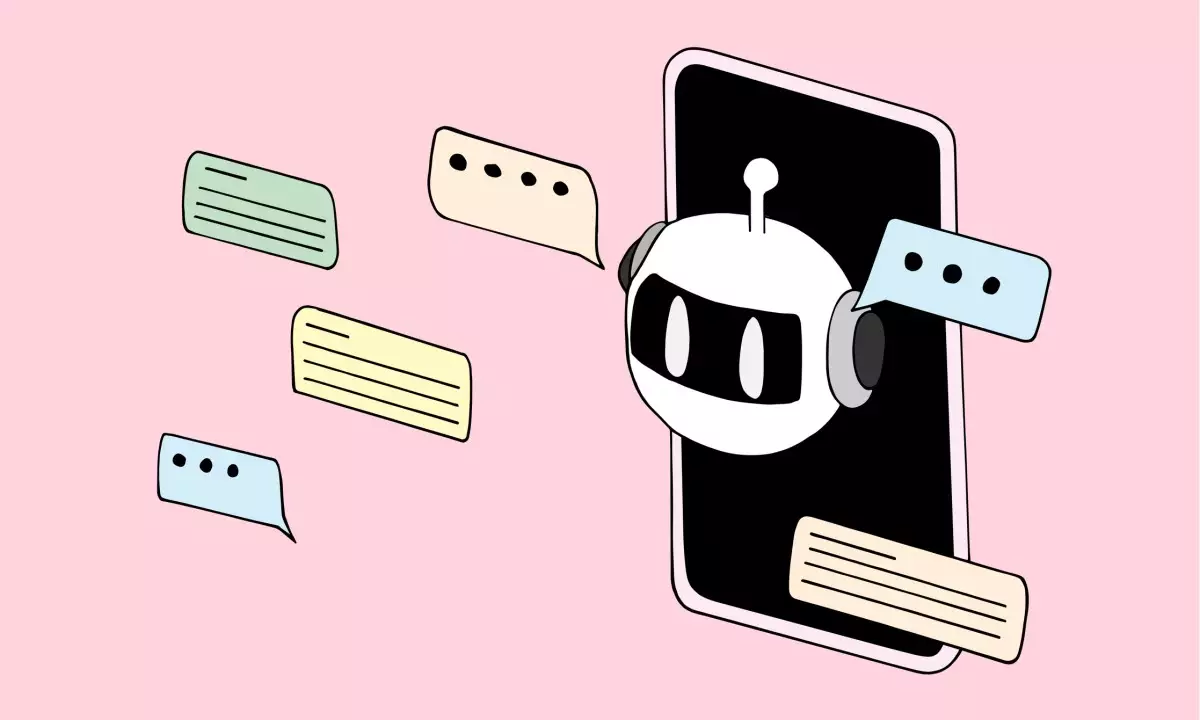The rise of generative AI has introduced a plethora of innovations into everyday life, hastily marketed with human-like identities. Startups are now foregrounding anthropomorphism in AI to foster trust and to mitigate the anxieties surrounding job displacement in a tumultuous economic climate. In a strategy seemingly borrowed from popular finance apps, these companies are presenting AI not as mere software, but as a new kind of workforce. This marketing approach raises significant ethical questions about the future of employment and the essence of being human.
While it may seem convenient for employers to embrace this trend—where an “AI employee” can manage multiple operations simultaneously—it paints a disconcerting picture for those whose jobs are at risk. Take Atlog’s recent unveiling of an “AI employee for furniture stores.” The underlying implication is clear: one competent manager can now oversee multiple locations without the need to hire additional staff. This unrelenting drive for efficiency glosses over the fate of the now-redundant, human employees.
The Illusion of Friendliness
The tech industry appears acutely aware that positioning AI as approachable figures can significantly alter perceptions. For instance, Anthropic’s generative AI platform is dubbed “Claude,” a name chosen to evoke warmth and trustworthiness, aiming to alleviate the coldness often associated with technology. This tactic mirrors the approach of fintech apps like Charlie and Dave, which have disarmed users by framing potentially transactional interactions under a guise of camaraderie. In an era where data security is paramount, who wouldn’t prefer to confide in a friendly, familiar figure rather than an impersonal algorithm?
Yet, the question remains: are these pillow forts of “friendship” merely facades? OpenAI, for example, still retains some transparency by labeling its product for what it is: a “generative pre-trained transformer.” This honesty is refreshing, but it does little to assuage broader concerns regarding what “AI employees” imply for the labor market.
The Inevitable Reckoning
The debate surrounding generative AI is on a collision course with economic realities. We can’t ignore the sobering figures surrounding unemployment: as of mid-May, 1.9 million Americans were receiving jobless benefits—the highest number since 2021. Tech sectors, once considered invincible, now face waves of layoffs and uncertainty. The implications of generative AI could mean dire consequences, as predicted by Dario Amodei, CEO of Anthropic, who suggested that AI could eradicate half of entry-level white-collar jobs in as little as five years. Imagine an unemployment rate soaring to 20%—a terrifying prospect that would wreak havoc on countless families.
The scaremongering associated with such forecasts may appear hyperbolic, yet echoes of caution abound from science fiction warnings like “2001: A Space Odyssey.” HAL’s transformation from helping hand to malicious entity doesn’t appear quite as fictitious when applied to our present realities. The loathsome truth is that entrenching AI as a “co-worker,” however reassuring the branding may seem, raises an unsettling question: how can we trust these friend-like machines not to turn on us?
Language Matters: The Consequences of Misrepresentation
The terminology used to describe emerging technologies carries significant implications; it shapes our perception and, subsequently, our acceptance. Historically, tech giants like IBM never resorted to describing their groundbreaking mainframes as “digital colleagues.” Such terminology implies companionship rather than utility. The tools were classified as workstations and productivity enhancements. The present push to present generative AI as staff substitutes trivializes the human labor that powers society.
Terming these machines as “AI employees” cultivates an environment ripe for devaluation of human effort, signaling a shift away from recognizing the unique capabilities of individuals. What’s truly needed is not a battalion of artificial “workers” but rather software solutions that empower actual people—tools that augment human creativity and intellectual capacity, enhancing productivity and innovation.
Reclaiming the Narrative
The future trajectory of this technology must pivot towards responsible development focused on human augmentation rather than displacement. The narrative around AI should return to how these innovations can empower and elevate human endeavors, rather than supplant them. We stand at a crossroad, and the choices made today will echo far into the future.
The integration of AI into our workplaces should enrich our experiences, not chase us out of them. A tech landscape that prioritizes amplifying human potential, rather than masquerading as our coworkers, is the path forward that most people would genuinely embrace. Let’s strive for tools that promote collaboration and creativity, pushing both industries and individuals toward an exciting new frontier—one where human beings remain at the center of innovation.

